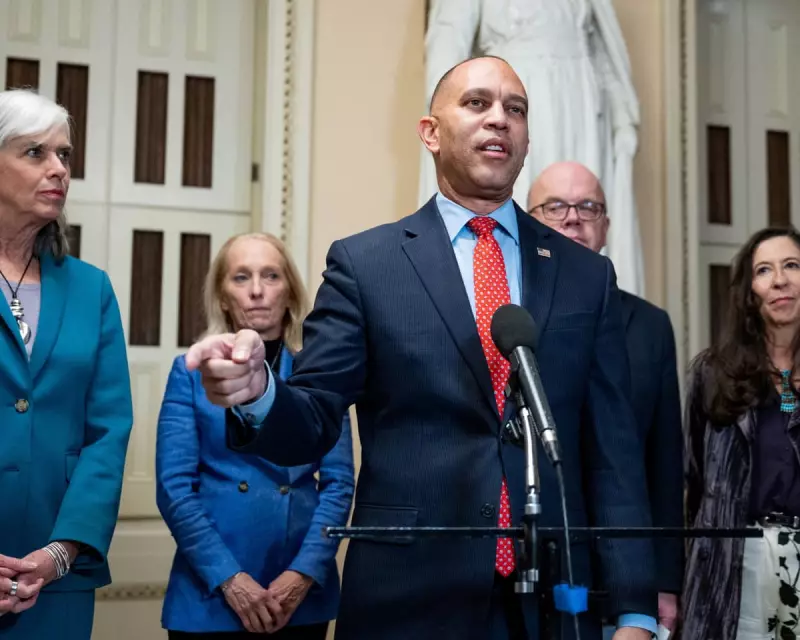
Record-Breaking Government Shutdown Finally Concludes
The United States government has resumed normal operations following the longest federal shutdown in American history, which lasted for 42 gruelling days. The political standoff finally broke on Wednesday evening when Congress passed a funding bill, though the minority Democratic party failed to secure any of their key demands in the final agreement.
Democratic Strategy Backfires
For over six weeks, congressional Democrats employed an unusual tactic by refusing to authorise government funding unless Republicans agreed to extend tax credits that reduce costs for Affordable Care Act health insurance plans. This marked a significant departure from their usual approach to budget negotiations.
The deadlock was ultimately broken by a combination of Republican majorities in both chambers and a splinter group of Democratic senators who provided the crucial votes needed to overcome the Senate's filibuster rules. The minority party now finds itself analysing the wreckage of a shutdown that yielded no policy concessions from the governing Republicans.
Despite the apparent defeat, many Democrats are framing the episode as a strategic victory. Pennsylvania Congresswoman Summer Lee argued that "I hope that people in America will see those of us who are willing to stand, and hold the line for them", suggesting the party demonstrated its willingness to fight for principles in Donald Trump's Washington.
Healthcare Remains Central Battlefield
The shutdown represented a dramatic shift in strategy for Democrats, who had spent months watching Republican priorities advance through Congress and the conservative-dominated Supreme Court. During this period, several key Democratic priorities suffered significant setbacks:
- The country's main foreign aid agency was closed
- Droves of federal workers were fired or encouraged to resign
- Medicaid, the federal health programme for poor and disabled Americans, was downsized
- Tax cuts benefiting businesses and wealthy individuals were made permanent
When faced with the September deadline to extend government funding authorisation, Democrats saw their opportunity to draw a line in the sand. Their demands included extending the Affordable Care Act tax credits created under Joe Biden, reversing Medicaid cuts, and undoing Trump's use of rescissions to slash congressionally approved funding.
In the end, all they secured was a promise from Senate Majority Leader John Thune to hold a vote on reauthorising the healthcare credits. The outcome remains uncertain, with no guarantees about Republican support in the Senate, House Republican leaders' willingness to bring it to a vote, or whether Trump would sign such legislation.
Political Fallout and Future Battles
The shutdown's conclusion brings only temporary relief, as the funding bill keeps the government open only through January, setting the stage for another potential confrontation early next year. Democratic Minority Leader Hakeem Jeffries made the party's ongoing commitment clear, stating "We will stay on this issue until we get this issue resolved for everyday Americans".
While the tactical approach divided some within Democratic ranks, the party may have gained intangible benefits. Opinion polls consistently showed voters blaming Republicans more than Democrats for the shutdown, and the party recently enjoyed success in off-year elections across several states.
North Carolina Congressman Don Davis, one of six House Democrats who voted for the funding bill that ended the shutdown, explained that stories of hardship from constituents convinced him the standoff needed to end. "I had a person, a constituent, talking to me, literally in tears. That's not what I want", he revealed.
As federal workers return to their jobs and government services resume, all signs indicate that the healthcare battle will continue to dominate American politics, with the January funding deadline looming as the next potential flashpoint.





